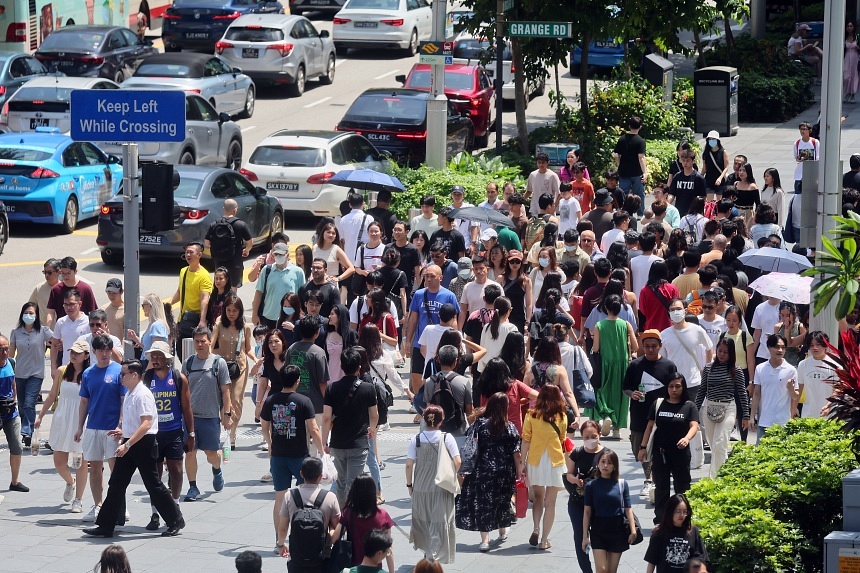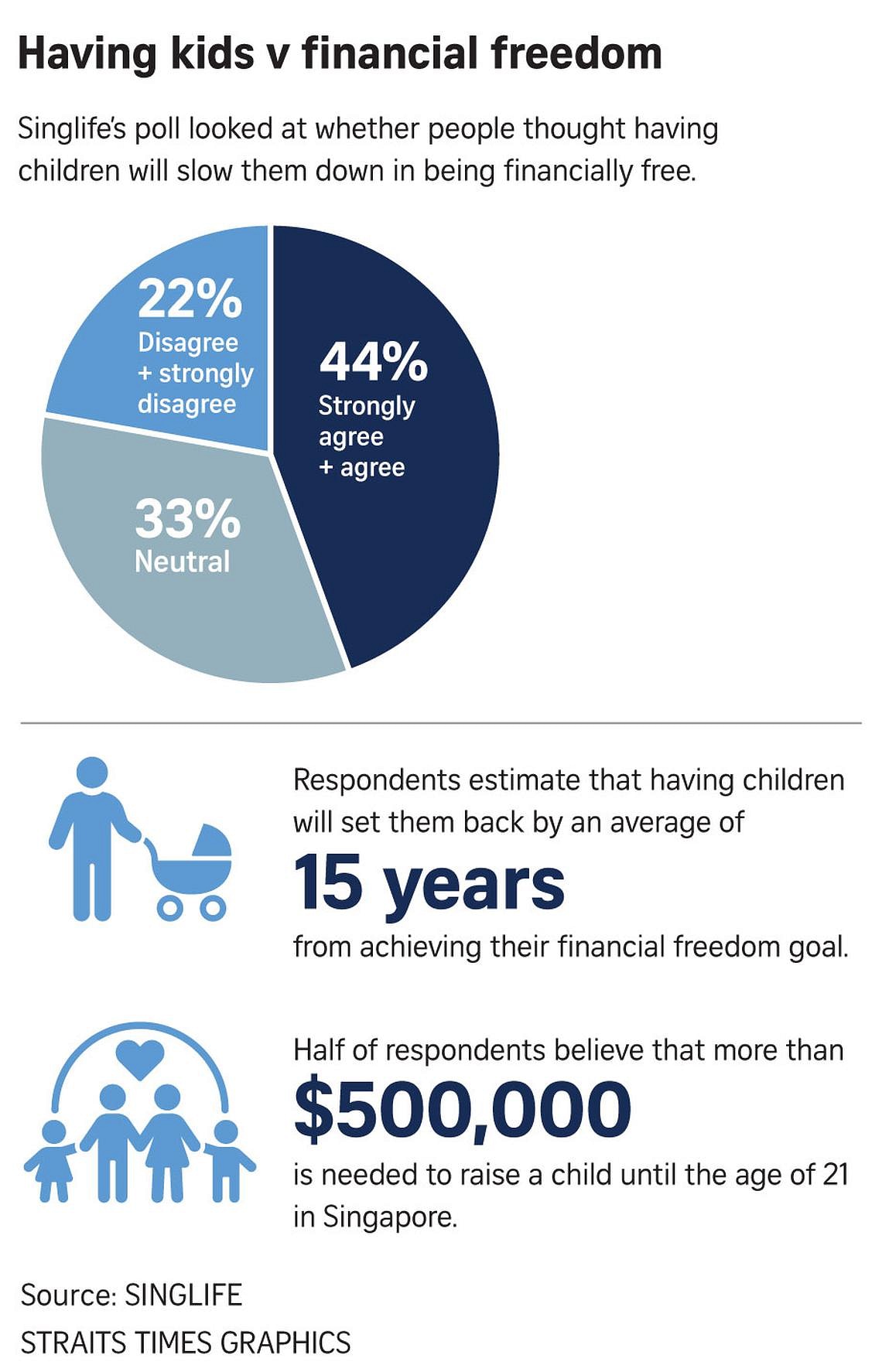Close to half of Singapore residents say they will never achieve financial freedom: Poll

The index findings were gathered through an online survey of 3,000 Singaporeans and permanent residents aged 18 to 65 from April to June in 2024. ST PHOTO: KELVIN CHNG

Claire Huang
Senior Business Correspondent
Updated
Aug 26, 2024, 02:01 PM
FacebookTelegram
SINGAPORE - More than two in five people in Singapore believe they will never be able to achieve financial freedom based on their current trajectory, a poll has found.
Of the 3,000 people polled, 29 per cent said they will be able to achieve financial freedom, 27 per cent said they have already attained it, while 44 per cent said they will never be able to do so.
The top three reasons they cite for not being able to be financially free are: insufficient income, unforeseen personal or health circumstances, and job insecurity.


